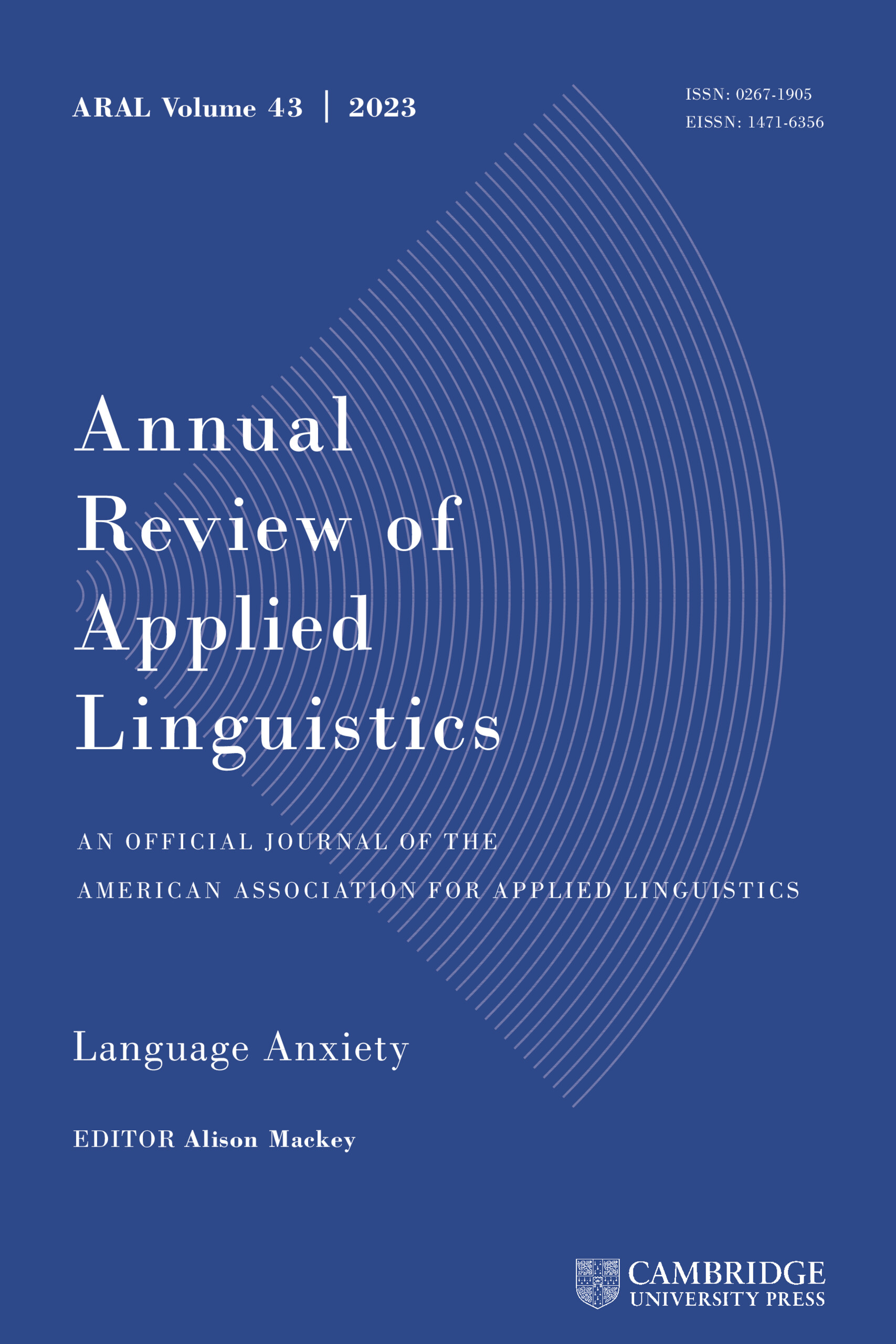Crossref Citations
This article has been cited by the following publications. This list is generated based on data provided by
Crossref.
Hellermann, John
2006.
Classroom Interactive Practices for Developing L2 Literacy: A Microethnographic Study of Two Beginning Adult Learners of English.
Applied Linguistics,
Vol. 27,
Issue. 3,
p.
377.
Kell, Catherine
2008.
‘Making Things Happen’: Literacy and Agency in Housing Struggles in South Africa.
The Journal of Development Studies,
Vol. 44,
Issue. 6,
p.
892.
Tagoe, Michael
2008.
Challenging the orthodoxy of literacy: realities of moving from personal to community empowerment throughReflectin Ghana.
International Journal of Lifelong Education,
Vol. 27,
Issue. 6,
p.
707.
Street, Brian V.
2008.
Encyclopedia of Language and Education.
p.
418.
Farrell, Lesley
2009.
The Future of Literacy Studies.
p.
181.
Cuban, Sondra
2009.
Outside Practices: Learning within the borderlands.
Literacy and Numeracy Studies,
p.
5.
Reder, Stephen
2009.
Scaling Up and Moving In: Connecting social practices views to policies and programs in adult education.
Literacy and Numeracy Studies,
p.
35.
Kell, Catherine
2009.
The Future of Literacy Studies.
p.
75.
Gutiérrez, Kris D.
Morales, P. Zitlali
and
Martinez, Danny C.
2009.
Re-mediating Literacy: Culture, Difference, and Learning for Students From Nondominant Communities.
Review of Research in Education,
Vol. 33,
Issue. 1,
p.
212.
Byrnes, Heidi
Maxim, Hiram H.
and
Norris, John M.
2010.
Author Bios, Figures and Tables, Acronyms Used, References.
The Modern Language Journal,
Vol. 94,
Issue. s1,
p.
203.
Duff, Patricia A.
2010.
Language Socialization into Academic Discourse Communities.
Annual Review of Applied Linguistics,
Vol. 30,
Issue. ,
p.
169.
Roozen, Kevin
2010.
Tracing Trajectories of Practice: Repurposing in One Student’s Developing Disciplinary Writing Processes.
Written Communication,
Vol. 27,
Issue. 3,
p.
318.
Liu, Jin-Yu
Chang, Yu-Jung
Yang, Fang-Ying
and
Sun, Yu-Chih
2011.
Is what I need what I want? Reconceptualising college students’ needs in English courses for general and specific/academic purposes.
Journal of English for Academic Purposes,
Vol. 10,
Issue. 4,
p.
271.
2011.
Living Language.
p.
307.
Bigelow, Martha
and
Vinogradov, Patsy
2011.
Teaching Adult Second Language Learners Who Are Emergent Readers.
Annual Review of Applied Linguistics,
Vol. 31,
Issue. ,
p.
120.
Kell, Catherine
2011.
Inequalities and crossings: Literacy and the spaces-in-between.
International Journal of Educational Development,
Vol. 31,
Issue. 6,
p.
606.
Pease-Alvarez, Lucinda
2011.
Power, Agency, and Ideology.
Human Development,
Vol. 54,
Issue. 4,
p.
270.
Cheng, An Chih
2012.
Educational Stages and Interactive Learning.
p.
135.
North, Amy
2013.
Reading and writing between different worlds: Learning, literacy and power in the lives of two migrant domestic workers.
International Journal of Educational Development,
Vol. 33,
Issue. 6,
p.
595.
Dionísio, Maria de Lourdes
Castro, Rui Vieira de
and
Arqueiro, Ana Sofia
2013.
Cartographies of Becoming in Education.
p.
111.




